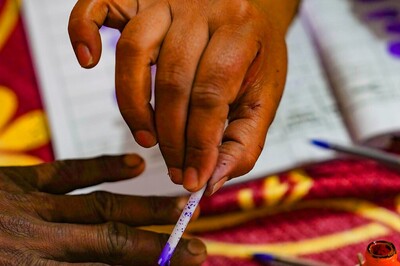
views
Bengaluru: Go looking for lunch, but get only the side dishes or the desserts. That may give you some comfort, but it’s not going to satisfy your hunger entirely. And that’s the feeling that has been recurring over and over for the team probing the Gauri Lankesh murder.
The Special Investigation Team (SIT) probing the Lankesh murder has been working with its entire focus on just this one case for the last five months. But while the main perpetrators of the murder themselves are at large, the team has been able to solve (and in at least one case, prevent) other crimes, thanks to its crackdown on the arms traders.
The first such major case that came into prominence was when the Crime Branch in Bengaluru was tipped off about a possible murder attempt on a journalist, Sunil Heggaravanahalli.
While on the track of where the guns and ammunition for the Lankesh killing came from, the police had questioned a gun-runner in December, who later led investigators to a ‘supari’ contract killer Shashidhar Mundewari. But with both leads not pointing to any role in the Lankesh murder, these cases were handed over to the Crime Branch in the city for them to continue investigations on – which later even led to the arrest of one of Kannada’s senior journalists Ravi Belegere, the editor of popular tabloid ‘Hai Bengaluru.’
“There have been scores of crackdowns on weapons dealers in north Karnataka districts like Bidar, Gulbarga and Vijayapura,” says a senior officer who has been working closely from north Karnataka. The SIT itself had nearly a 100 members for the first three months when more men were required to fan out – this was later disbanded and restricted to a core team of about 40.
The weapons trail led the team members to a nomadic tribe community in Madhya Pradesh that has developed expertise as blacksmiths. The team believes these tribals run a sort of cottage industry in making country-made guns. These would then be ferried through middlemen to wherever there was a demand from—in this case, north Karnataka, where petty criminals or small criminal gangs often procured them. Each country-made gun could cost Rs 50,000 to Rs 75,000.
Nearly 15 persons have been picked up at various times over the last three months, with the police on the weapons trail. In all, at least 45 weapons have been seized at different junctures – and cases booked in respective police stations locally.
“The weapons network has been disrupted completely now. Of course, it’s impossible to say that the state is cleansed of it – but there is a fear that has set in about the easy flow of weapons into the State,” the officer told News18 on condition of anonymity.



















Comments
0 comment